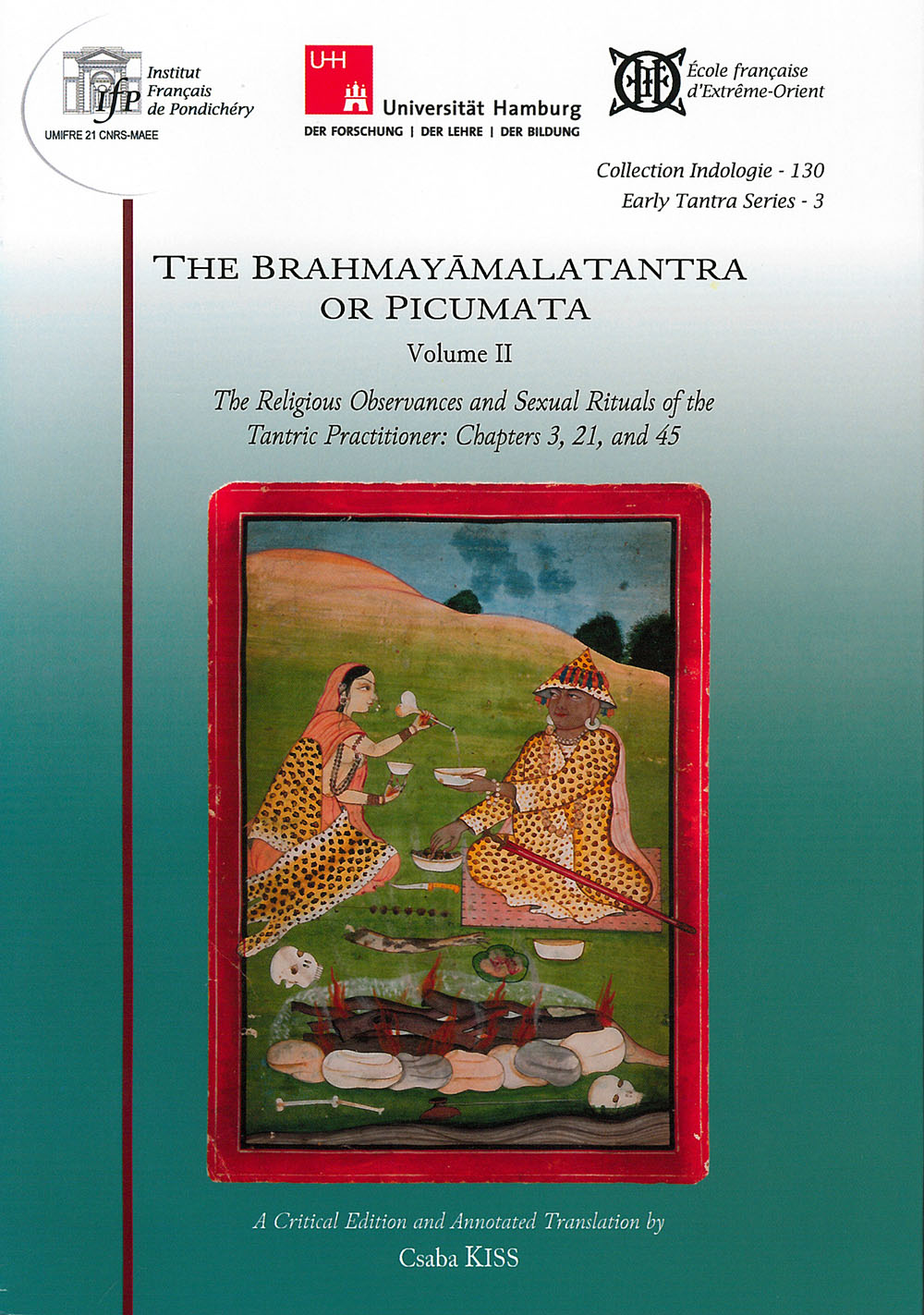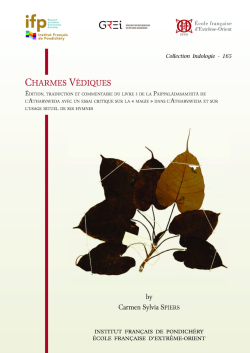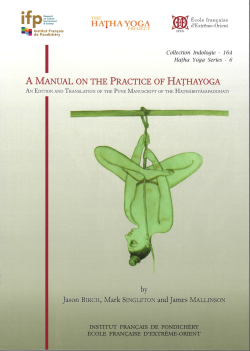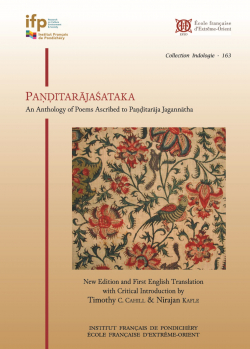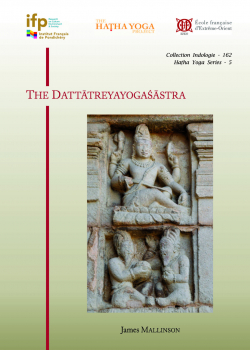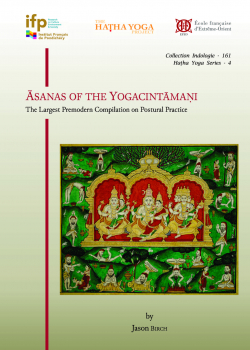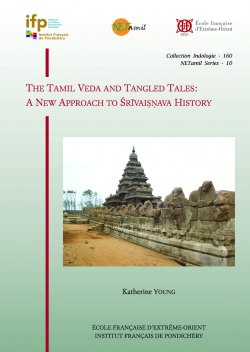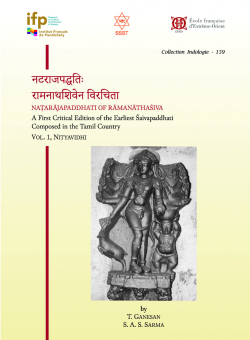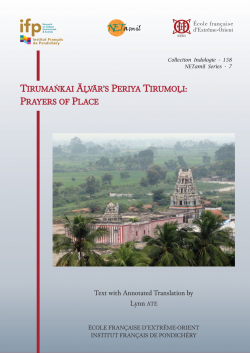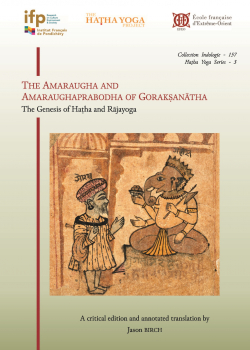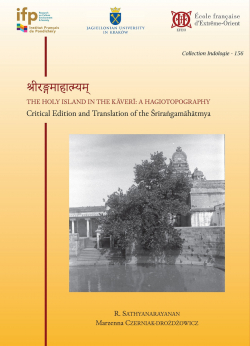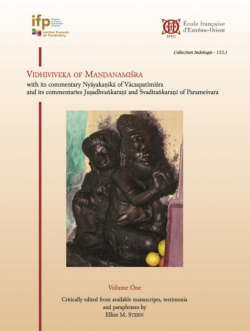Le catalogue des Éditions de l'EFEO, riche d'environ 900 titres, propose des publications portant sur l'Asie, depuis l'Inde jusqu'au Japon, et couvrant un large spectre disciplinaire en sciences humaines et sociales (archéologie, histoire, anthropologie, littératures, philologie, etc.).
Ces publications, si elles s'adressent d'abord à la communauté scientifique, intéressent également un public attiré par les civilisations et sociétés d'Asie.
The Brahmayāmalatantra or Picumata vol. 2
Volume II. The Religious Observances and Sexual Rituals of the Tantric Practitioner: Chapters 3, 21, and 45
Collection : Collection Indologie
Numéro de collection: 130
Édition: EFEO, Institut français de Pondichéry (IFP), Asien-Afrika-Institut, Universität Hamburg
Année de parution: 2015
Statut : Disponible
32,00 €
ISBN-13 : 9782855391533
ISSN : 0073-8352
Largeur : 17 cm
Hauteur : 24,5 cm
Poids : 0,65 kg
Nombre de pages : 374
Distributeur : EFEO Pondichéry Contact : shanti@efeo-pondicherry.org, distributeur online : scholarswithoutborders@gmail.com, distributeur Chennai : jibh.rkc@gmail.com
Géographie : Inde
Langue : Anglais, Sanskrit
Lieu : Pondichéry
Support : Papier
Description :
373 p., ISBN (IFP) : 978-81-8470-207-1
Résumé
The Brahmayāmalatantra (aka Picumata) is probably one of the earliest surviving Śaiva tantras, and possibly the earliest one known to us of the Bhairavatantra tradition. The present volume contains a critical edition and annotated translation of three of its chapters: one on the central maṇḍala of the cult, one on preliminary religious observances (vrata) prescribed for all practitioners (sādhaka), and one on instructions for each individual category of sādhaka — instructions on transgressive sexual rituals for the Tālaka, on strict rules of conduct for the chaste Carubhojin, and on a combination of these for the Mixed Practitioner. This unique system of sādhakas marks an early phase in the development of classification of practitioners seeking liberation and magical powers, and gives us an insight into the tantric world of extremes: of rule-bound sexual encounters involving several female partners and highly impure substances on the one hand, and of asceticism, strict vegetarianism and chastity on the other. The introduction deals with the main topics raised by the selected chapters, as well as with problems of the sometimes extremely non-standard (Aiśa) Sanskrit that the oldest manuscript transmits. One of the appendices provides a summary of the first twenty-five chapters (about one quarter of the Brahmayāmala) to facilitate further study. The extensive index includes all important keywords and all major Aiśa phenomena.
Notes
Vous pouvez également commander ce titre auprès de notre centre de Pondicherry via l'adresse suivante :
shanti@efeo-pondicherry.org
Ou bien, auprès de l'Institut français de Pondicherry via l'adresse suivante :
library@ifpindia.org
Les commandes à destination de l'Inde doivent être placée auprès de notre centre de Pondicherry ou de l'Institut français de Pondicherry.
Livres similaires
Collection Indologie
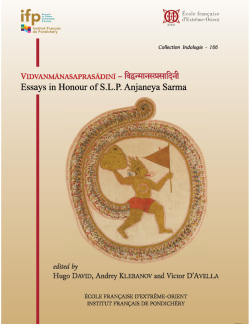
Vidvanmānasaprasādinī
S.A.S. SARMA, Dominic GOODALL, Harunaga ISAACSON, Suganya ANANDAKICHENIN, Hugo DAVID, Kei KATAOKA, Victor D’AVELLA, Giovanni CIOTTI, Andrey KLEBANOV, Émilie AUSSANT, Maria Piera CANDOTTI, Tiziana PONTILLO, Sibylle KOCH, Vincenzo VERGIANI, Timothy C. CAHILL, Somedeva VASUDEVA, Luther OBROCK, M. VINOTH, Maṇi DRĀVIḌA, Akane SAITO, Alex WATSON, Daniele CUNEO, Yūto KAWAMURA
60,00 €
2026
• Disponible
